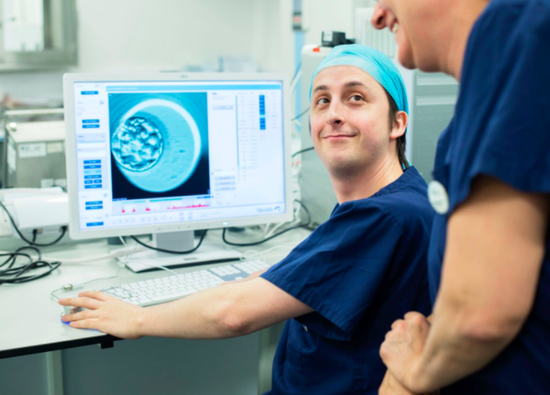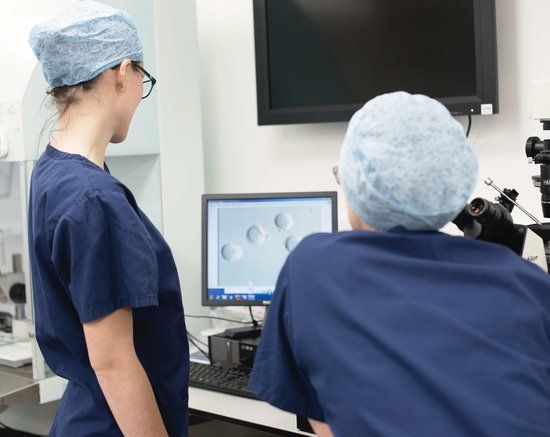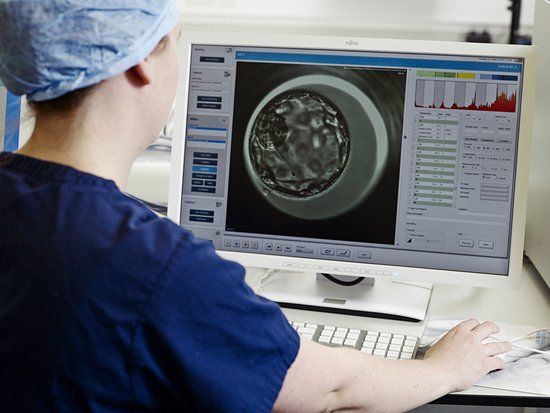
If you’re researching IVF treatment or are about to begin treatment, you may have some understanding about transferring embryos, but does the timing of the embryo transfer have any bearing on whether your IVF is successful?
Firstly, it’s important to know the process of what happens to your eggs after collection. Once we have retrieved your eggs, they are fertilised in our laboratory by either your partner’s sperm, or a donor’s. This is done either through IVF, or ICSI – a refinement of the IVF procedure where a single, specially-selected sperm is injected directly into the egg to fertilise it. At Manchester Fertility ICSI is most often used when the cause of the fertility problem is with the male partner.
Our team of embryologists then monitor your eggs to see if any fertilise. Fertilised eggs – called ‘zygotes’ – are kept in a special culture medium in our laboratory to promote their development. The medium is packed with the nutrients the eggs need to develop.
Stage 2
We then monitor your fertilised eggs to see if any develop into embryos, which can be transferred. On day 2 after fertilisation, we would expect to see that your fertilised egg has reached the two-four cell stage. And on day three, we would want to see that your embryos have reached the eight-cell stage.
Stage 3
In many IVF cycles, embryos are typically selected for transfer when they reach the Day 3 eight-cell stage. But sometimes, you may be advised that an earlier transfer is necessary, or a later transfer.
Earlier transfers – done at Day 2 – may be recommended if you don’t have many embryos. It could be that your embryo stands a better chance of developing if it is in the natural environment of your body.
Blastocyst
Later transfers – done at Day 5 of embryo development – is when your embryo has reached a specific stage of cell development and becomes what is known as a Blastocyst. A blastocyst is an embryo that have developed for longer, to the point where it is almost ready to implant. A blastocyst will look very different to an early stage embryo as the cells start to divide into two types - ones that will become the baby and the others which become the placenta. As the embryo is at an advanced stage, we can identify the best embryo to transfer, which increases the chance for the embryo to implant.
We will keep you informed about the development of your embryos during your treatment cycle. It’s important to remember that not all eggs will fertilise, and not all embryos will develop sufficiently to be transferred. And transferring embryos earlier – or later – doesn’t necessarily mean you have a better chance of IVF success.
It is possible to have successful treatment from a 2-day embryo, as it is from a day-3 embryo or a blastocyst. At Manchester Fertiity, we do not charge you for Blastocyst transfers.
Our expert embryologists use many different factors to decide when the right time is to transfer your embryos, including the quality of your embryos, how they have developed and also the quantity of embryos you have.
If you have any questions about embryo development and the timing of your embryo transfer, please get in touch with us on0161 300 2737.
Last updated: 4th October 2019





